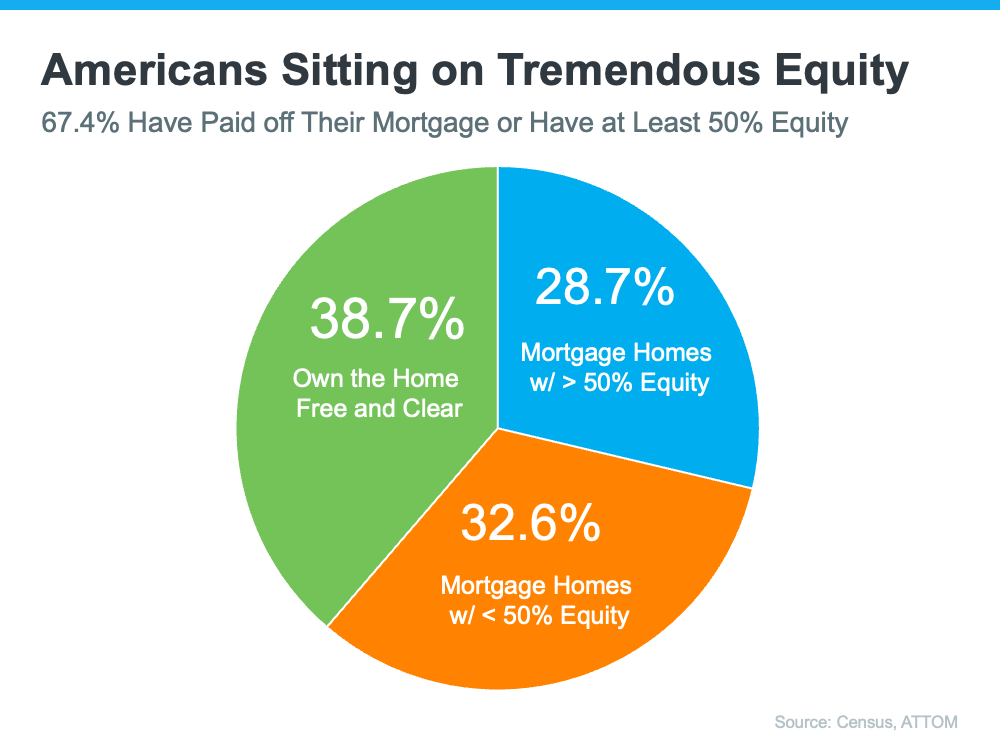Moving into a new house is exciting – and, like most major life events, incredibly stressful. You have to pack, clean, and hire movers, all on a timeline and budget.
According to a survey conducted by OnePoll, 64% of respondents consider their latest relocation one of the most challenging experiences they have ever had.
Moving comes with many different parts: planning, budgeting, and figuring out how to get your precious belongings into your new home. While procrastinating may be tempting, you can take a few simple steps to make your move less stressful.
What to do before you move
Whether you are moving in a few months or a few weeks, take some time to outline a plan for packing up your home. Making a checklist, blocking out time on your calendar to pack, and taking small steps weeks or months ahead of your move will make the moving day much easier.
Start decluttering and packing early
Moving into a new home gives you a chance for a fresh start. As you pack your space, make piles of items to donate and throw away. If you plan on buying new furniture, now is a great time to donate old bookcases or hand-me-down tables.
Start by decluttering items you will not need to use until after your move. For example, go through your winter wardrobe if you are moving in the summer. Donate things you do not use and throw out anything damaged. You do not want to get stuck unpacking junk in your new dream house, so now is the time to get rid of it.
Decluttering your home is especially beneficial if you are selling your current property and buying a new one simultaneously. If there is room in your house, store the moving boxes until it is time to go. If there is room in your budget, consider renting a storage unit. The more items you can get rid of or put in storage before you move, the more spacious your home will look to potential buyers.
As you pack, remember that labels are your friend. Write down the contents of the box and which room the box needs to be unpacked in once you reach your new home. Keep similar items together and ensure the boxes are fairly easy to lift. Packing a large box of books might seem like an easy way to stay organized, but that will not matter if you cannot lift the box.
Starting with items you do not use daily, you will have most of your belongings packed ahead of your move. A week or two before moving day, start packing more everyday items. Disposable plates and takeout menus will come in handy once all your plates are packed away.
Set aside an overnight bag or suitcase for your first night in your new home. Keep your toothbrush, some toiletries, medications, and a change of clothes in the bag to have everything you need for moving day.
Ask for help
When you made your checklist, you probably included “hire movers.” Not everyone has the budget to hire professional movers; if that is the case, you may need to contact friends and family for help.
Only some people can help move, but help comes in many different ways. If you are moving with kids, ask your parents to watch your little ones for the afternoon so you can get a large chunk of packing done. If one of your friends enjoys cleaning, painting, or dusting, ask if they can come over and help with that. Sometimes, even having someone to talk to while you pack helps the process go faster.
If you have a friend with a truck or van, they may be willing to help move you for the low price of snacks and a pizza dinner. If you have friends or family helping you move, make sure to have refreshments ready. Coffee and donuts make the morning move sweeter. Renting a U-Haul can help get the job done quicker and in fewer trips, which everyone will appreciate.
Professional movers will get the job done quickly. They can also safely move larger and more expensive items, and many moving companies offer a guarantee, so you do not have to worry about something important getting broken or lost.
If you are on a budget, consider hiring a smaller moving crew to transport large items, like dressers, bedroom sets, or anything delicate that you are not comfortable dealing with yourself. Then borrow a friend’s truck or invite a few family members to help move your other things. This option gives you the best of both worlds: professional movers will take care of the tough parts of the move, and you will save money by moving the rest of your things yourself.
What to do during your move
If you have prepared enough ahead of time, it will be easy to outline a plan for your movers. Remember to take deep breaths, stretch, and stay hydrated. Getting swept up in all the activity can be easy, so do not forget to take care of yourself.
Taking care of yourself may involve hiring a babysitter for your small children on moving day. Consider sending pets to a daycare or boarding service so they are safe and out of the way. This way, you do not have to juggle caring for your kids, pets, and the moving crew all at once. You can reunite with your kids or pets safely in your new home.
Move at the right time
Sometimes life happens and you must move quickly for a new job opportunity, school, or other life change. If you have more flexibility, try to move during the off-season.
The real estate market is busiest in the summer and moving companies may have limited availability over the holidays. Try to move in the early spring or fall. March, April, October, and November tend to be slower months for real estate. You will also have more moving companies to choose from since they will have more availability during the off-season.
If you have to move during the busy season, there are a few factors to consider. Most people move on the weekend; if you rely on family and friends to help you move, that may be the most convenient option for everyone. People will not have to worry about taking time off from work, and you can get a lot done over two days.
If you plan on hiring a professional moving service, try to schedule your move on Tuesday or Wednesday. You will be more likely to get a reservation and may even pay a lower rate.
Prepare yourself for your first night in your new home
It is finally here – you are in your new home. With your overnight bag at your side, you are ready to start your new life.
You can set yourself up for success on the first night. Try to get over to the property before move-in day. Hire a cleaning service or give the place a deep clean before bringing all your stuff over. Ensure to label spots for movers to place furniture and have linens, bedclothes, and toiletries ready to unpack. Install window treatments for privacy in the bedrooms. Have a few snacks, bottled water, and pet food on hand.
What to do after you move
Before you start worrying about unpacking, take a breath. The movers are gone, you have the keys to your new house, and you are officially off to a fresh start. You have spent months planning and preparing for this moment. Take a beat and enjoy the accomplishment of a successful move.
Give yourself time to get settled in
The deadline is past, and the pressure is off. You can now take time unpacking, decorating, and setting up your new home. After such a flurry of activity, getting everything out of the boxes and putting it in its place can be tempting.
It is okay to take some time to figure out exactly what you want. Maybe you have a bigger kitchen now and must reconsider how to set everything up for the right flow. Maybe you want to explore the neighborhood instead of getting all your tools in the garage. Maybe you unpacked the last box in the house, but you still have that storage unit lurking in your mind.
If you have the budget, consider keeping some items in the storage unit. If you move in March and the storage unit mostly has Christmas decorations, snow blowers, or other winter things, you can wait and get it out later. You may even wind up decluttering a few more things in the meantime.
Safety first
Moving to a new place can be scary. Even if you have lived independently, being responsible for a property can be intimidating. Take care of common-sense security things, like changing the locks. Installing motion sensor lights is often enough to deter potential criminals. A home security system offers peace of mind at home or on vacation.
Conclusion
Moving homes can be difficult, but you can do a few things to alleviate moving stress. Planning, making a checklist, decluttering, and staying organized can make packing and moving easier. Contact your friends and family for help and hire professional movers if possible. There may still be stressful moments throughout the process but take a deep breath and prepare to start a new chapter in your new home.














